Building Virtual Worlds (2022)
Building Virtual Worlds (BVW) is a class at Carnegie Mellon's Entertainment Technology Center. The class has students put in teams of five to create a digital experience in two weeks. The goal of this class is to learn rapid prototyping, iteration, and teamwork. Here are some highlights from my experience in the class.
The Big Year
is a cooperative interactive experience built for “The Cave”, a room which includes a moving platform and three projected displays. This experience has the guests sent on a hot air balloon bird-watching adventure throughout multiple environments.
Team
Angie Mendenhall: Art
Caiyu Zhang: Art
Wenlong Yan: Programming
Yicheng Lu: Programming
Jessica Cromp: Production and Sound Design
Process

Escape Room
As a team, we wanted to step away from the VR space. So we were originally planning to create an escape room-like experience. This was not feasible in the time we had avaliable for the project. Model created by Caiyu Zhang.

Hot Air Balloon Battles
The original hot air balloon ideas included guests teaming up to defeat other balloons in combat. The idea of a co-op Cave experience would then be pulled into the final project.
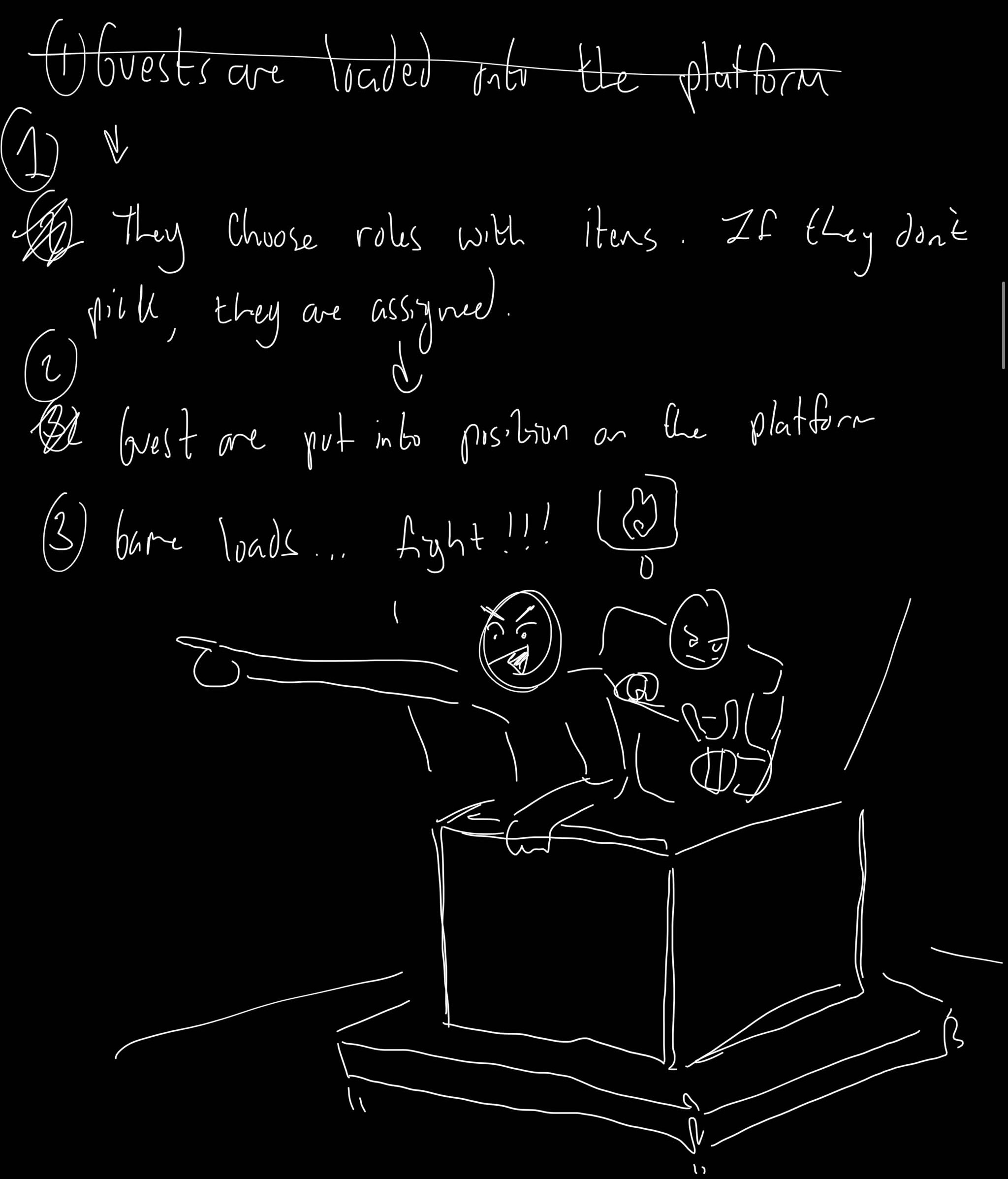
Air Combat
We wanted to emphasize the idea of cooporative play in these balloons, where players all had equivalent roles and would have to work around the small space of the motion platform to complete their tasks.
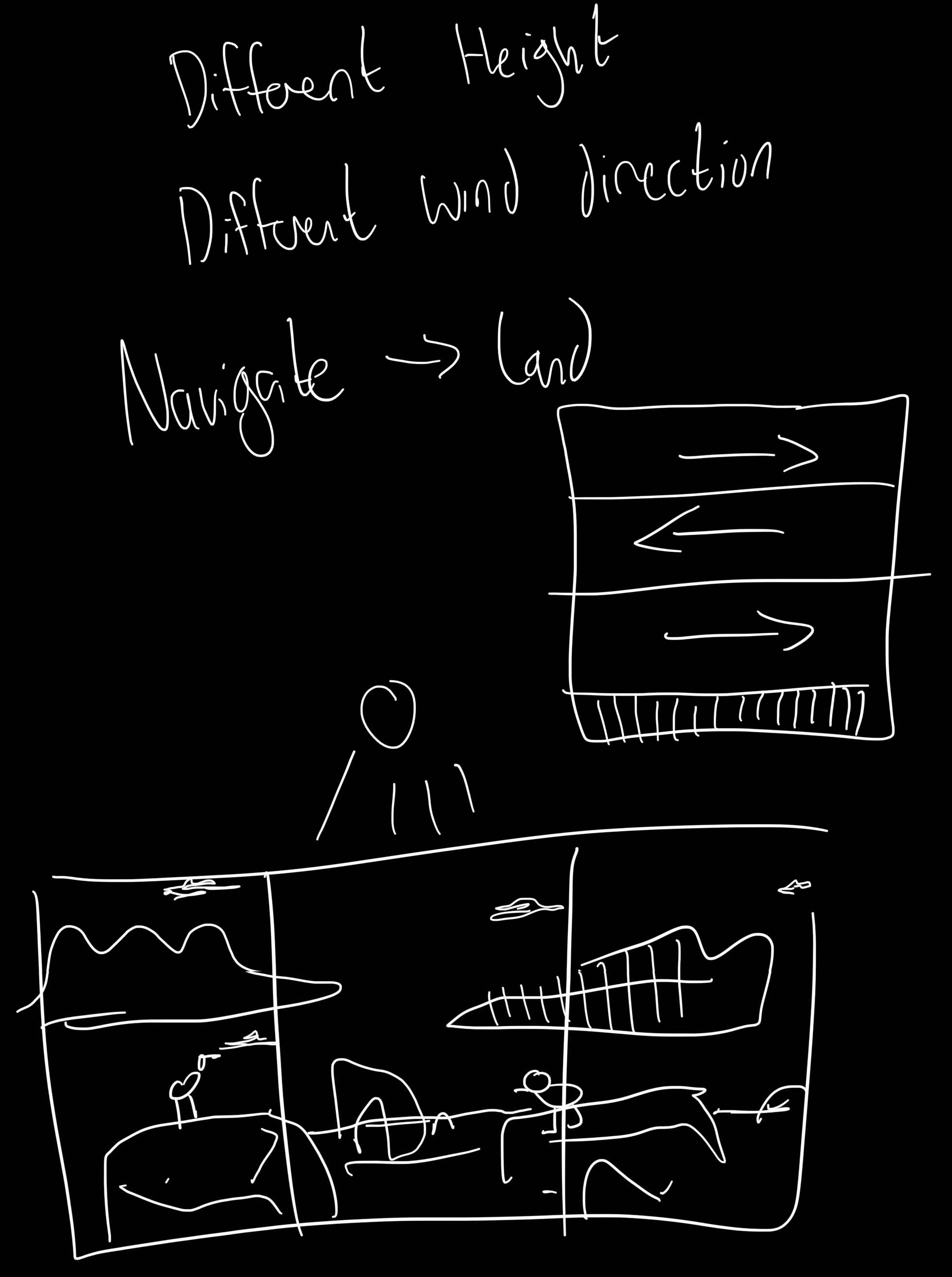
Planning
Here are rough plans on how the navigation of the game would work. The original plan included using sensors to detect if the flame of the balloon was being fueled, though this was scrapped due to time constraints.

Flying the Balloon
Using technology was out of scope for our project. So, in the basket we constructed, we had two poles at the front that guests would pull down. The operator at the computer would then input the movement of the basket.
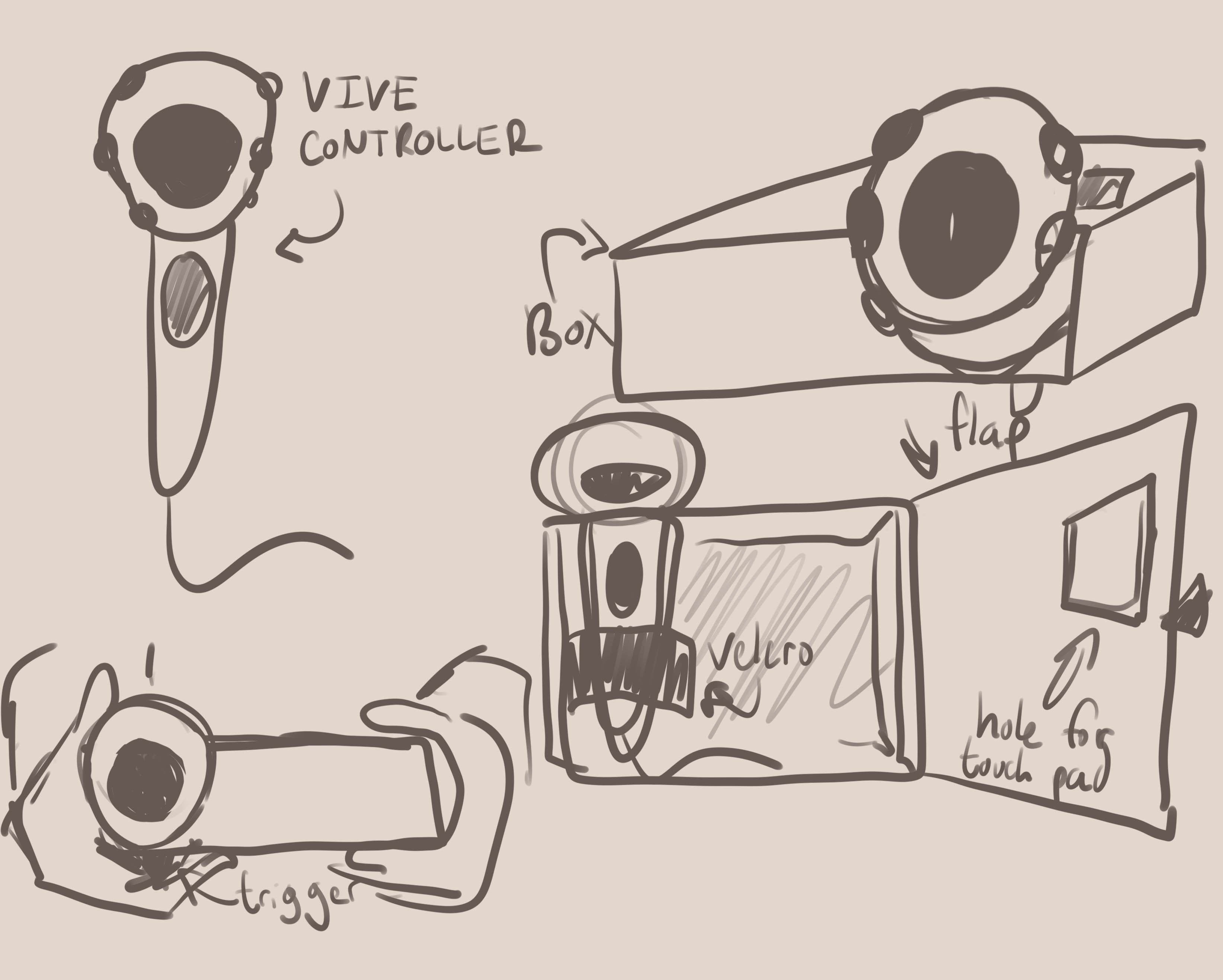
Photography
While one guest controls the height of the balloon, the other takes photographs of the rare birds seen in the area. The box is held like a sandwhich, with the trigger of the Vive controller poking out, to emulate the feeling of holding a camera.
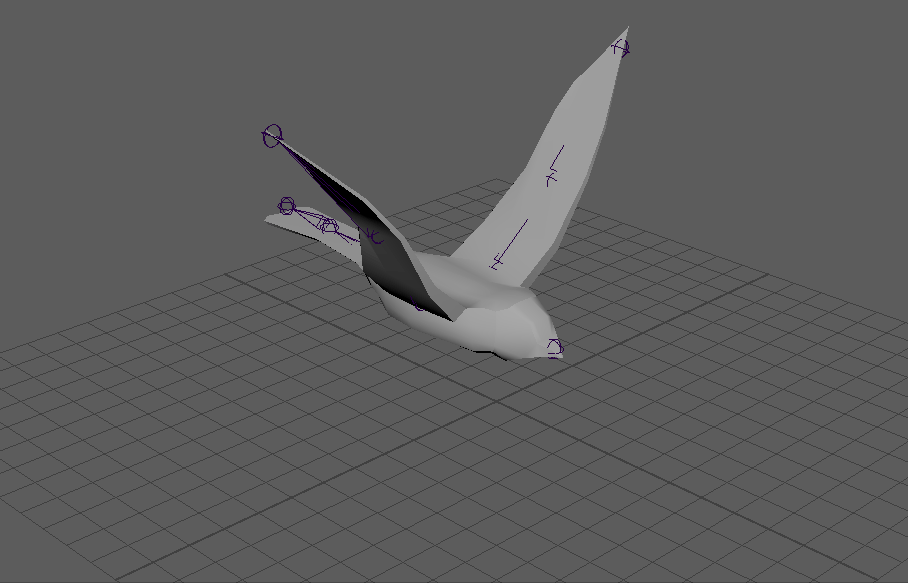
Birds to Photograph
Besides constructing the physical basket that guests "flew" in, I also assisted in creating 3D assets for the game.
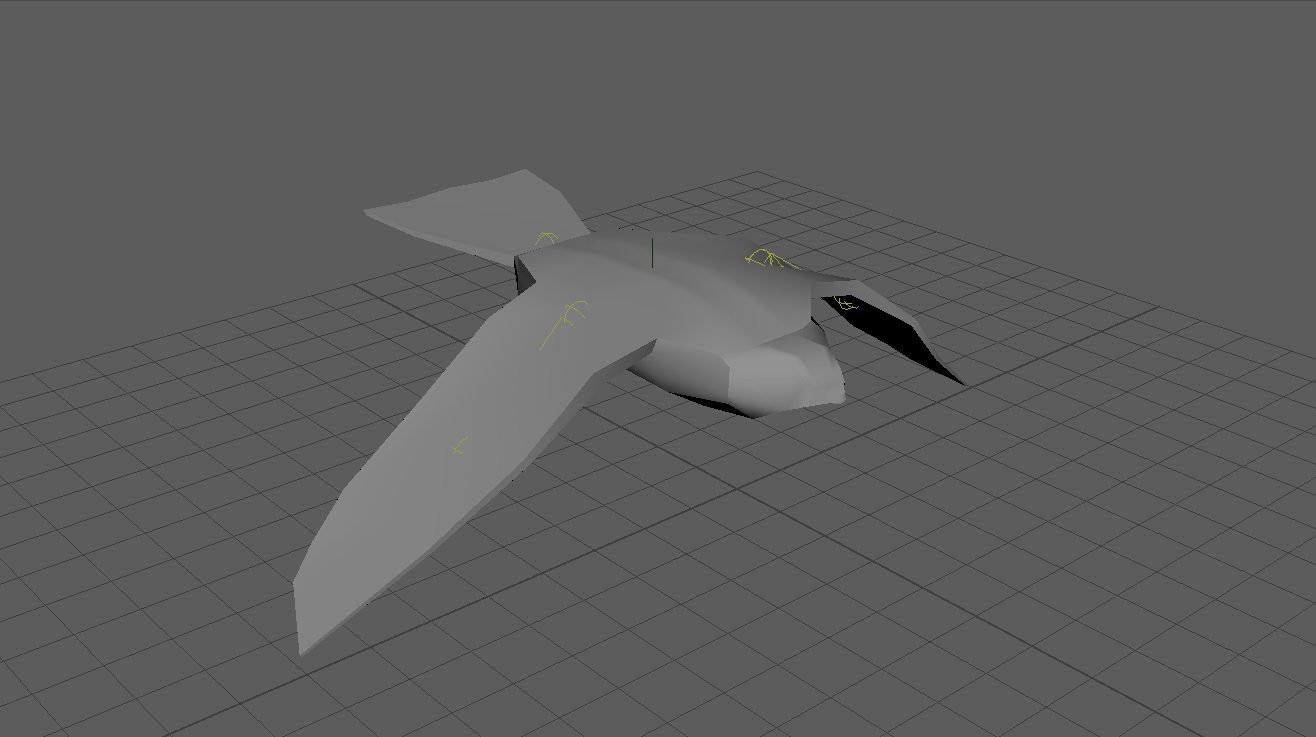
Birds to Photograph
I taught myself how to do basic rigging as well as basic animation in Autodesk Maya. I also created textures for these models. Due to the timeline of the project, we scoped on making birds difficult to see, hiding the seams of rougher models and textures.
Original Big Year
Here is the trailer for the experience.
Big Year for ETC Festival 2022
The updated version for the festival included a stronger basket, more birds, and a new environment for guests to travel through.
Laser Mom (2022)
is an Oculus Quest 2 Passthrough augmented reality game where guests must run from their virtual mom.
Laser Mom Gameplay Video
Team
Angie Mendenhall: Art
Anna Saliva: Art
Sy Suo: Sound Design and Production
Quoey Wu: Programming
Harry He: Programming
Process

Ideation
The prompt for the second round of Building Virtual Worlds was making an AR experience for the "naive guest", where we could not use explicit direction to the guest.
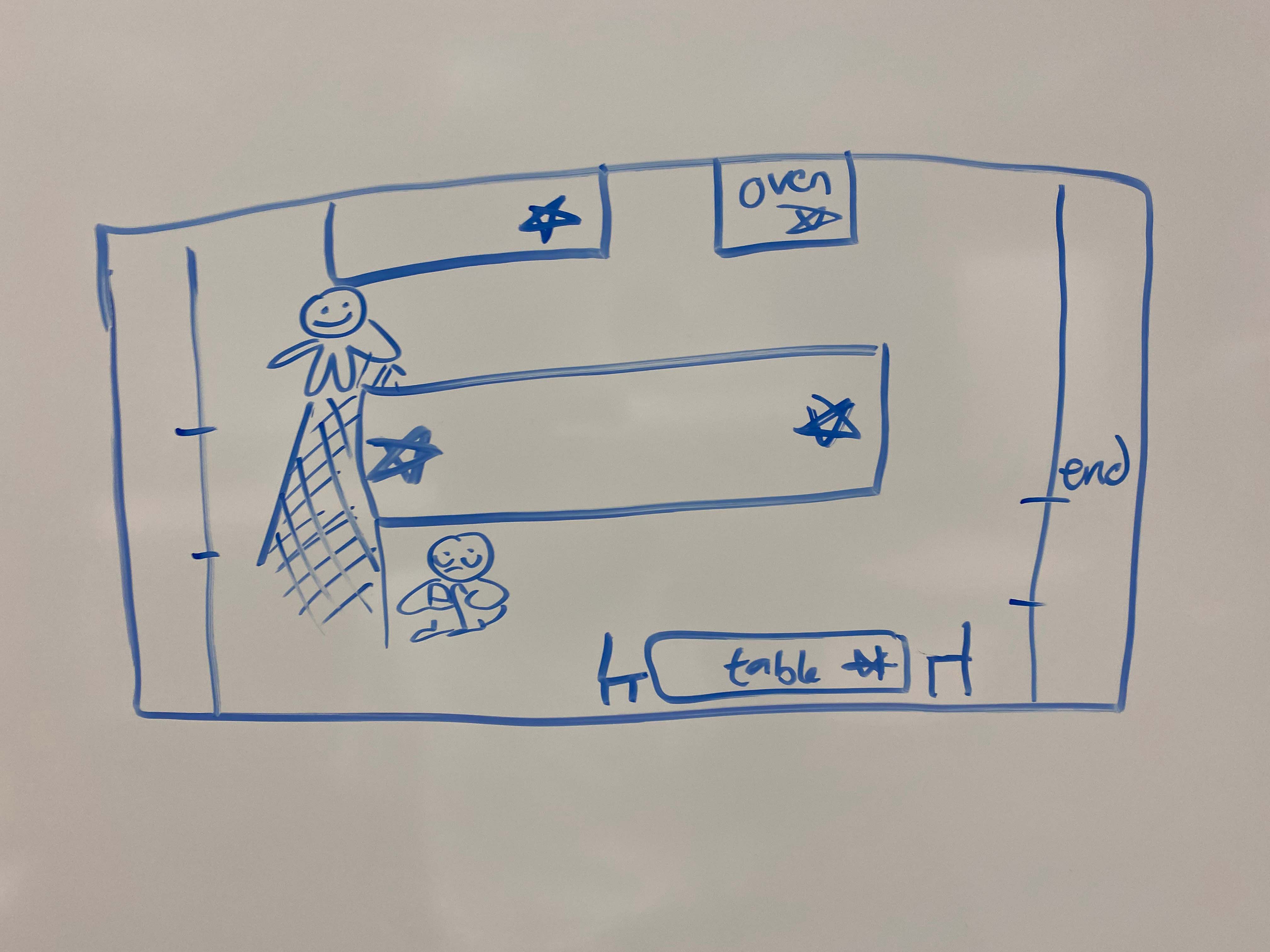
AR Stealth
We communicated with several ETC faculty trying to understand how to make an AR game that makes use of it's platform and not make a VR game. We consulted with Jesse Schell, where he spoke about a previous project that overlayed invisible virtual items on physical items to give the illusion of a digital character running on real boxes. I had thought about this concept for a while, thinking about how creating environments for play. This is where I thought of a stealth game, physically hiding behind boxes to avoid detection. When pitching this to my teammates, we bounced the idea back and forth, turning the setting from a generic robbery to a silly stealing candy in the kitchen game.
Playtesting
To see if we wanted to build the stealth game, we decided to roleplay what the game would feel like. I played as the virtual character, the mom, who was searching for the player character, the child. We played a few rounds of this and decided that this is the direction we wanted to go. It was fun, fast, and intuitive.
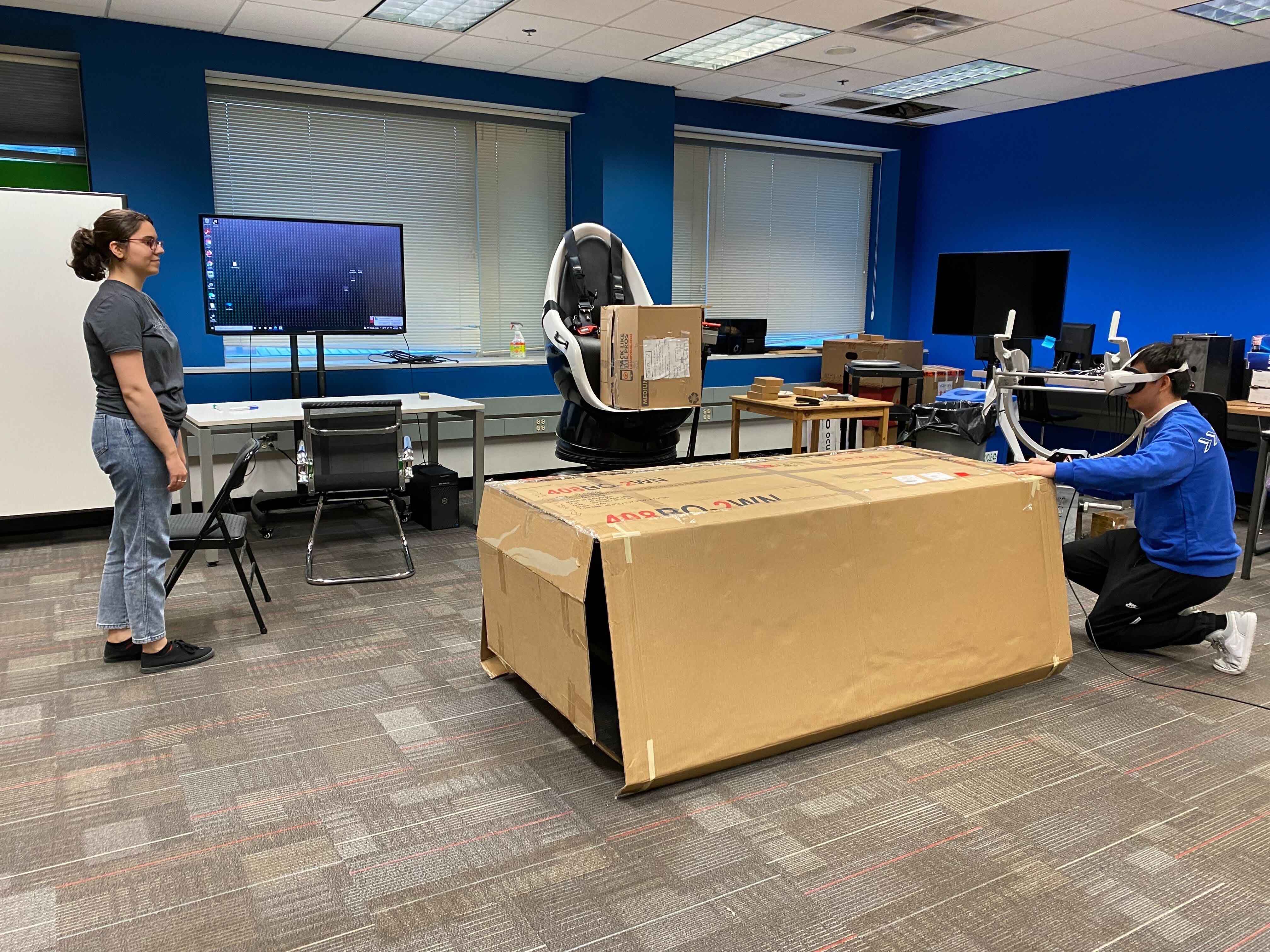
Table
With our idea solidified, we rushed to build our project. We only had a week and a half to go, so we had to work quickly to complete it. We constructed our kitchen table out of a cardboard box and used it in conjunction with the grayboxed prototype to test the game.
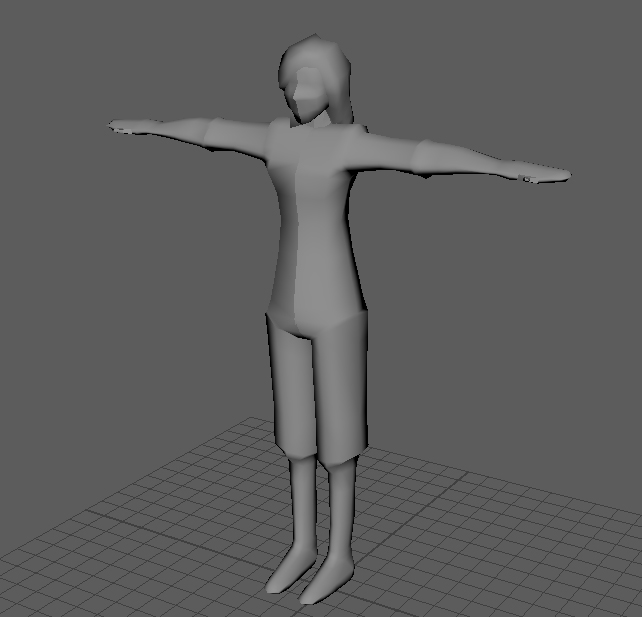
Mom Model
I was in charge of making the 3D model and animating the mom character. I had never modeled a character before, only items and simple animals, so this was exciting and difficult. It took me a few attempts to get it to a place where I was comfortable sending it over to the other artist to be rigged.
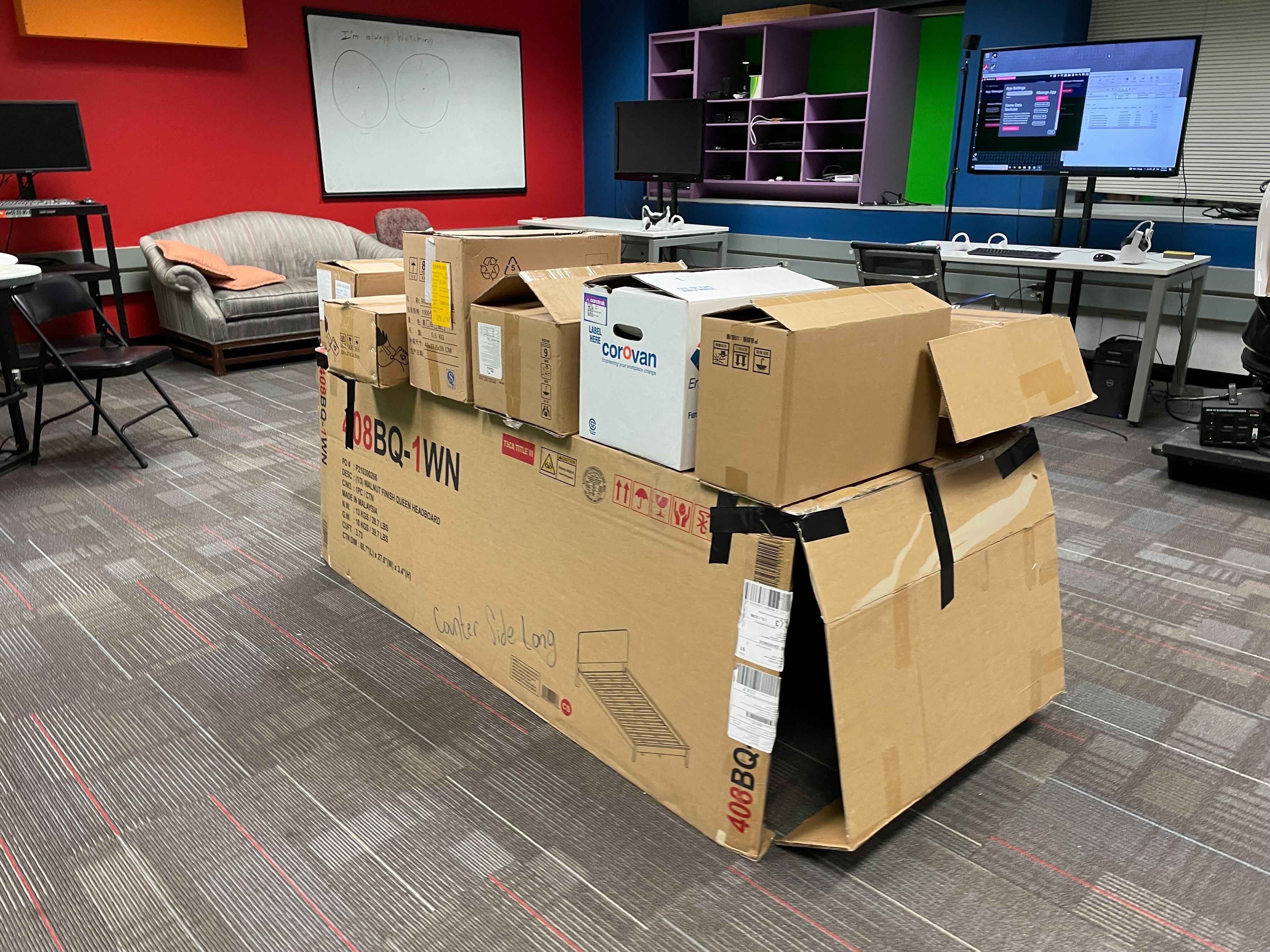
Table Adjustment
After a few playtests, we felt the table was a little too low for guests to comfortable crawl around it, so we used more boxes to extent the height.
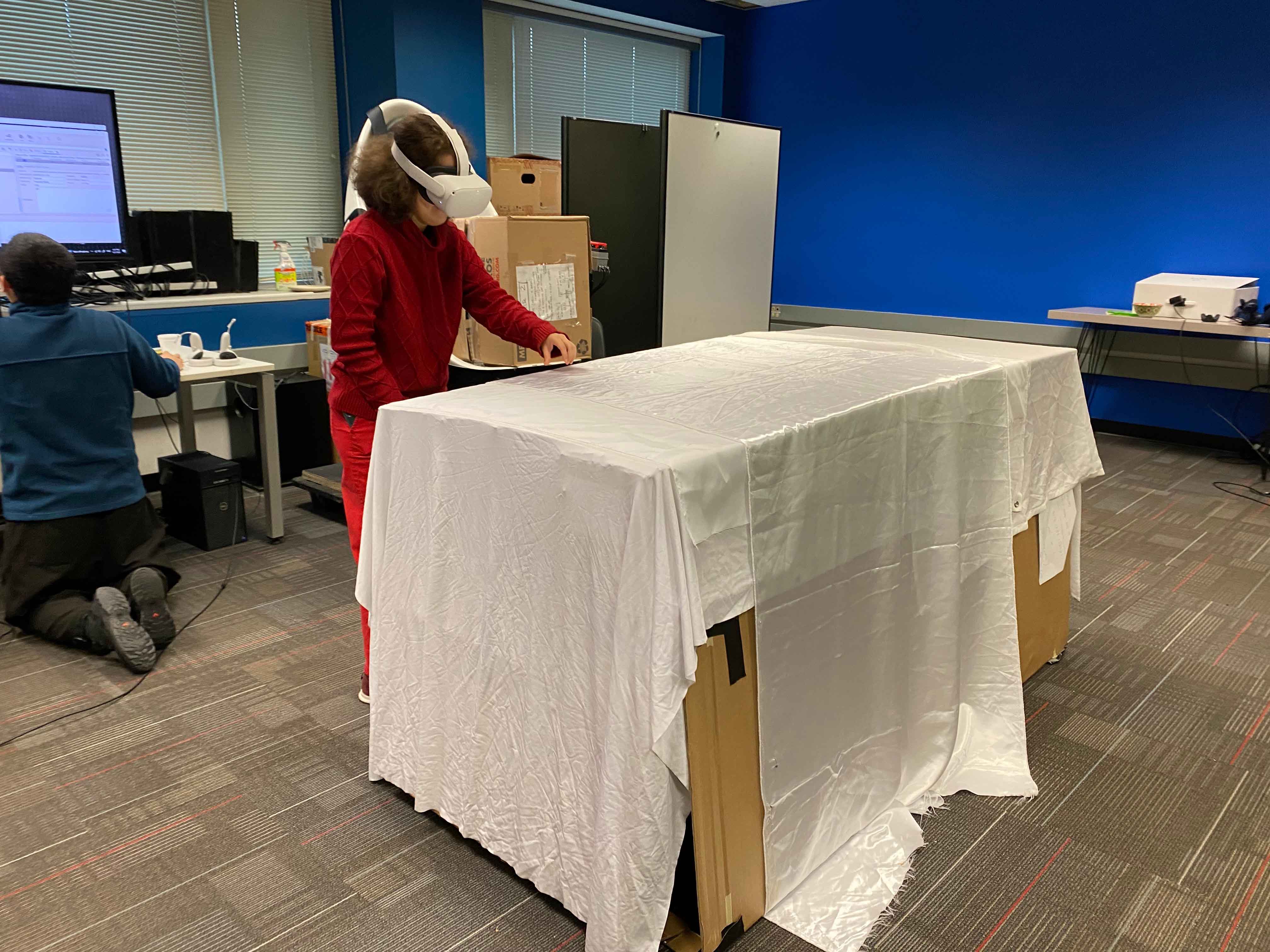
Playtesting
We had several non-ETC students experience our game to see how intuitive the mechanics and process was. We took down their feedback and made adjustments to game accordingly.
Final
Here is a video of the final product being played by a naive guest.